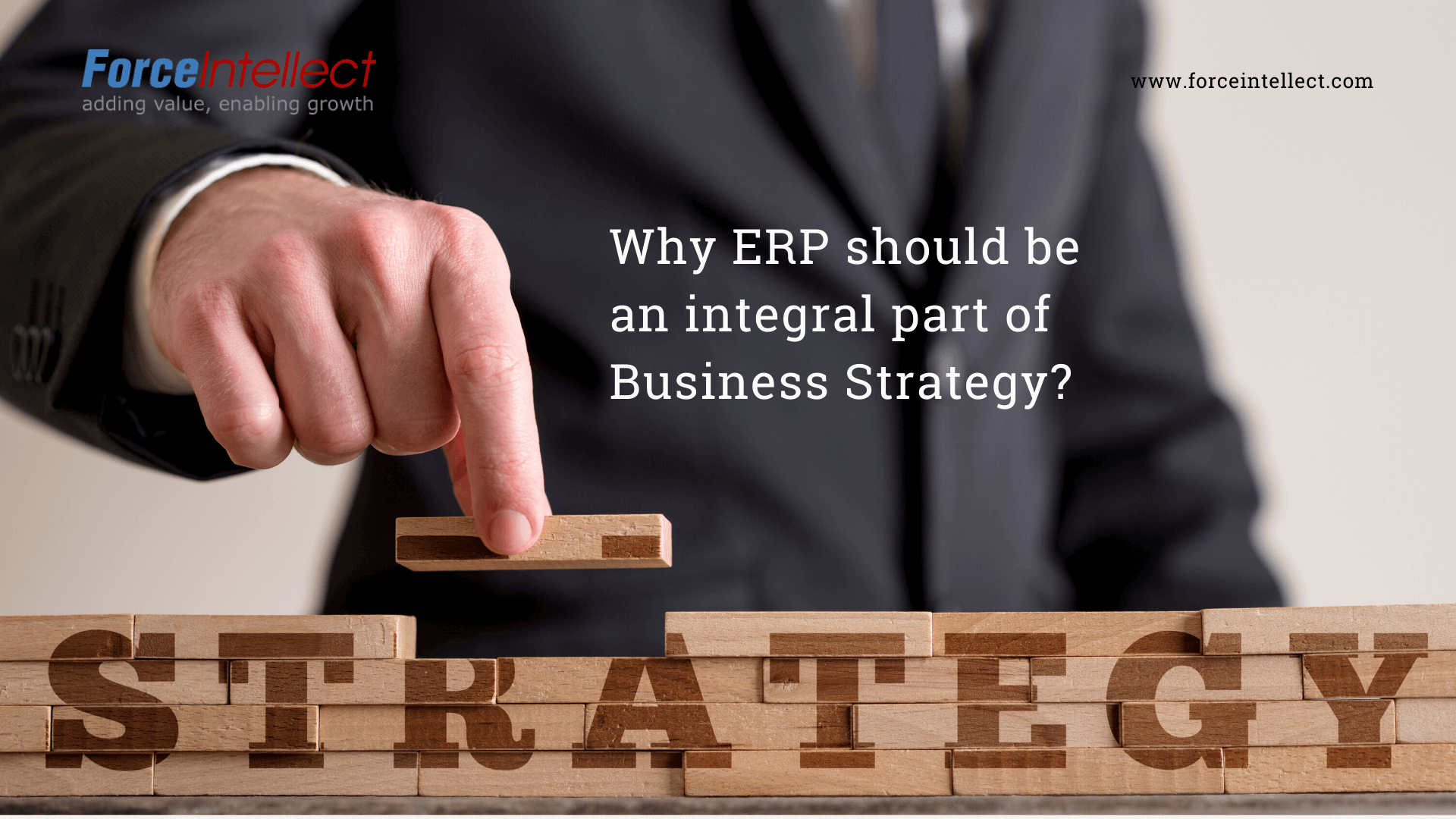
Business Strategy and ERP: Why ERP should be an integral part of business strategy?
A business strategy is the roadmap to achieve the company’s business objectives. Defining & designing a business strategy, ensuring proper implementation, monitoring the results, and ensuring course corrections is crucial for ensuring business success. An ERP software can play a crucial role in implementing, monitoring & refining the business strategies, hence a company should align ERP with the company’s business strategy. Let us now see, how an efficient ERP Software will help roll out and implement business strategies and achieve the business objectives.
What is Business Strategy?
Business Strategy is usually a long term business plan to achieve the objectives over 3-5 years. The business strategy consists of clearly defining the business goals to be achieved, setting up the course of actions, business processes, and taking decisions to achieve specified business objectives.
Why is a business strategy important?
A business strategy is crucial for ensuring effective planning & execution. It clearly defines, what are the key steps, how activities will be performed, and who is responsible. Business strategy guides you to allocate appropriate resources for vital processes to improve efficiency. Business Strategy serves as a mariners compass to monitor and track the progress and perform course correction to stay on target for achieving the objectives.
Remember, Without Strategy, Execution is Aimless and Without Execution, Strategy is Useless.
How does the business strategy work?
A company first defines the business goals to be achieved over the long term. It then clearly defines the business strategy on how to achieve these business goals. Further, it designs the business processes that will help accomplish these business goals/objectives.
Now let us understand this, with the help of an example.
Business Goal: Suppose, one of the business goals is to Reduce Inventory level by XX% or from XXX to XXX and free up XXX amount of working capital.
Business Strategy: Following are some strategies to achieve the goal of “Reduce Inventory”
- Implement Standard Inventory Management Practices
- Ensure Accurate Inventory Information
- Accurate Demand Forecasting & Planning
- Build Good Supplier Relations
- Monitor Inventory KPIs
Business Process: To execute the above strategies, we can create processes such as:
- Implement Warehousing & Inventory Management Rules & Disciplines
- Set up Standard processes, Reports, KPIs and review system
- Specify Lead Time for inventory items
- Determine Max Stock levels & Safety Stock levels as per item classification
- Define Reorder Point & Reorder Quantity to ensure optimum inventory
- Set up Alerts & Notifications for events & management by exception
Why ERP should be aligned with Business Strategy?
Now let us see how ERP software provides the technology edge to create a framework for implementing business strategy by linking it to the appropriate business processes of an organization.
ERP software integrates all important processes across locations and departments. ERP captures real-time and accurate data across the organization. Provides a single source of accurate data with complete transparency. Tracks the processes and provides insights and analysis based on the trends, history. Enables making informed, timely decisions. All this creates the groundwork required to roll out business processes & implement business strategies in a company.
With ERP, companies can define and implement business processes, rules & guidelines, apply validations and checks, and set up notification & alerts in case of any deviation from the defined workflow. Set up KPIs for each process and monitor each function meticulously.
Some more examples of business strategies for manufacturing companies & How ERP enables business strategy execution?
1. Achieve Speed in Business
 When a company desires to achieve speed in business to gain a competitive advantage, ERP helps to keep a track of the time spent on activities such as – time to production, time to procure, time to deliver. This provides insights for areas of improvement to achieve speed. Introducing business discipline, automating tasks, sending alerts notifications, managing by exceptions also helps bring Speed in Business.
When a company desires to achieve speed in business to gain a competitive advantage, ERP helps to keep a track of the time spent on activities such as – time to production, time to procure, time to deliver. This provides insights for areas of improvement to achieve speed. Introducing business discipline, automating tasks, sending alerts notifications, managing by exceptions also helps bring Speed in Business.
2. Increase Productivity & Efficiency
 Almost every company aims to increase productivity & efficiency as part of their business strategy. ERP enables implementing standard business practices & company-wide policies. Digitizes, Streamlines & Automates Processes. Automation of routine, monotonous activities turbocharges the processes and improves productivity & efficiency.
Almost every company aims to increase productivity & efficiency as part of their business strategy. ERP enables implementing standard business practices & company-wide policies. Digitizes, Streamlines & Automates Processes. Automation of routine, monotonous activities turbocharges the processes and improves productivity & efficiency.
3. Increase Customer Satisfaction
 A crucial strategy to grow any business is to increase customer satisfaction. The Customer Relationship Module (CRM) in ERP provides a holistic view of the customer with all their specific needs & requirements and history of all interactions with the customers over a period of time. You can analyze this information to recognize your valued customers, know your customers better, focus on continuously improving products and services based on their specific requirements, provide personalized advice that will add value to them.
A crucial strategy to grow any business is to increase customer satisfaction. The Customer Relationship Module (CRM) in ERP provides a holistic view of the customer with all their specific needs & requirements and history of all interactions with the customers over a period of time. You can analyze this information to recognize your valued customers, know your customers better, focus on continuously improving products and services based on their specific requirements, provide personalized advice that will add value to them.
Summary
When business goals, strategies, and ERP software are aligned together, you will be able to gain maximum value from the ERP implementation and take major strides in achieving your business goals.
Request a Demo of Spectrum ERP Software Now!

